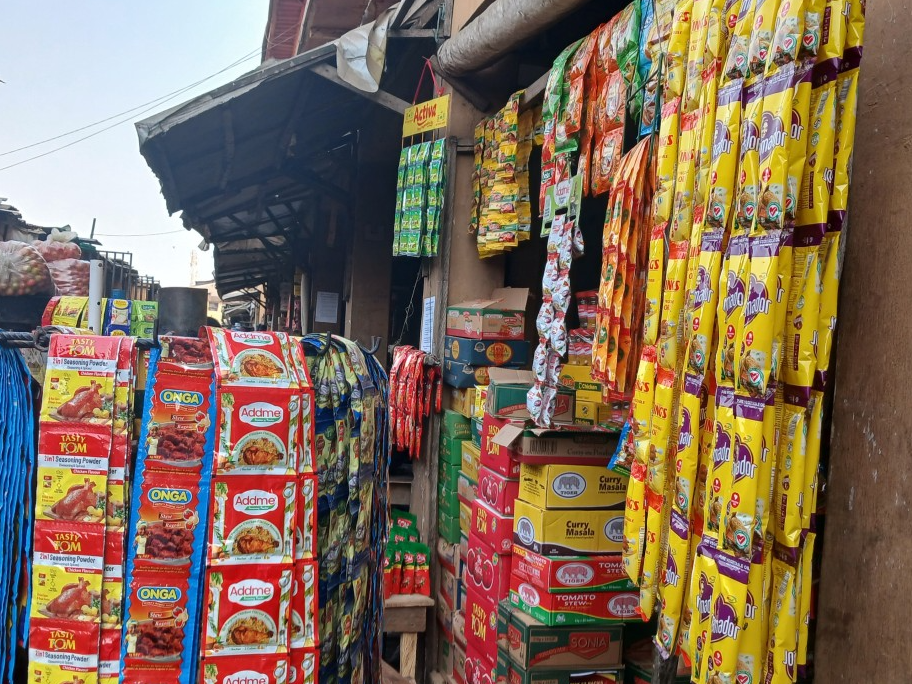Spices—food seasonings that supplement limited natural ingredients—have become commonplace in most Nigerian homes.
For Blessing Eneh, a resident in Port Harcourt, rising costs of natural condiments such as meat and fish have made packet spices indispensable. She often turns to an N100 sachet of seasoning to create the illusion of a rich meal.
“I don’t have a refrigerator so there’s no means to store meat and to be honest, I cannot afford one,” she says.
Unlike Eneh, Eshiet, a businesswoman in Rivers, frowns upon spices sold in the market. “I would rather blend mine or make do with natural spices at home,” she explains, citing safety concerns.
These contrasting choices reflect a wider national trend. Packet spices have become a go-to option in many Nigerian kitchens. But what’s driving this trend?
The allure of convenience
“Convenience is one of the biggest reasons urban Nigerians overuse these spices,” explains Ifunanya Emmanuella Eze, a food scientist. “Many don’t have the time or resources to prepare natural spice blends.”
Where families could dedicate long hours to preparing meals with freshly ground spices years ago, today’s long commutes and demanding work schedules leave little room for such practices. So shelf-ready spices provide prompt alternatives.
Another reason for their appeal is their minimal cost. Despite a marginal decline in the national inflation, protein sources like fish and beef remain out of reach for the average family. These spices—sold under labels like “Kitchen Glory,” “Larsor,” “Ajinomoto” and “Onga”—help to enrich plain meals.
Hidden costs of sachet spices
Many of these are made with preservatives, artificial flavours, and excessive sodium—which contribute to their long shelf life.
Their high sodium content, Eze explains, can trigger irritation and headaches, eventually leading to “basically cardiovascular diseases: stroke, high blood pressure, kidney failures, heart attack,” she says.
Most of these diseases or symptoms depend on genetics and overall health history, though.
The recommended daily salt intake for adults is no more than 5 grams. Nigerians, however, consume 10 grams on average, double the safe limit.
Over 70% of this salt intake comes from processed foods, including seasoning cubes, noodles, sauces and spice mixes. Unaware of this, some Nigerians continue to add extra table salt to their meals.
Such overconsumption alters how the body processes taste, according to Eze. “When people consume too much artificial flavor, their taste buds become less sensitive. They start believing their food cannot taste good without these packet spices.”
The health consequences are enormous. Hypertension—a condition that is linked to excessive sodium intake and is a major risk factor for strokes and heart diseases—now affects more than 35% of Nigerian adults.
Straining the kidneys
Perhaps the most insidious impact of packet spices is on the kidneys. When sodium levels rise, the body retains extra water to dilute it, increasing blood volume. This forces the heart to pump harder and stresses the kidneys, which must filter more fluid.
“That means the heart and kidneys are forced to work overtime. Over years, this overload contributes to heart disease, kidney failure, and sometimes sudden death,” Eze added.
The Lagos State University Teaching Hospital (LASUTH) has reported a worrying increase in kidney-related admissions each week, urging Nigerians to undergo routine screening.
Nationally, ailments tied to excess salt consumption account for 12% of all deaths in Nigeria, according to data by Corporate Accountability and Public Participation Africa (CAPPA).
These disturbing statistics suggest that a great deal of fatalities in Nigeria could be prevented if dietary habits changed.
Along with convenience and costs, cultural beliefs also add to the mix. Pre-packaged spices have become a staple of modern Nigerian cooking because Nigerians “are not confident in their cooking skills,” Eze says.
While Eze admits to using them occasionally in her cooking—“Personally, I use pre-packed spices sometimes”—she maintains that they’re not superior to natural varieties.
Blended Traditions, Blended Risks
Nigeria is home to an impressive range of natural spices: uda (Negro pepper), ehuru (calabash nutmeg), uziza seeds, ginger, garlic, cloves, curry leaves, and scent leaf, among others. These staples of West African cooking are valued not just for their flavor but also for their medicinal properties.
“Homemade spices are safer because you control the salt,” Eze stresses. She encourages people to look online for recipes to blend their own combinations.
Regulation gaps
In 2022, the National Agency for Food and Drug Administration and Control, or NAFDAC, passed the Pre-Packaged Food (Labelling) Regulations, mandating manufacturers to provide clear nutritional information. Enforcement has been lax, however.
According to a cross-sectional study of packaged foods, of the 70% that complied with the labelling requirements, only 23% followed through completely. Many failed to disclose sodium content.
Unbranded spices sold in open markets bypass regulations altogether, meanwhile. Consumers have no way of knowing what chemicals or contaminants they may contain.
Still, regulation addresses supply but not demand, encouraging further use.
“Our regulators can inspect factories, but they cannot monitor how much an individual adds to their food,” Eze observes, adding that public education is crucial to ensuring safe consumption.
Reclaiming tradition
Even as many food experts emphasise moderation, they extol the medicinal benefits of natural herbs like scent leaf, basil, curry leaf and thyme.
Globally, campaigns against high sodium consumption are ramping up. Amidst Nigeria’s national guidelines, experts argue for an increase in public-health awareness across schools, churches, and communities.
Local preference for traditional flavours is catching on slowly. Some retail stores are marketing spice blends that use only natural ingredients, offering healthier but tasty alternatives.
For all their commercial benefits, packet spices may not be without long-term health risks, as experts say.
Summary not available at this time.






